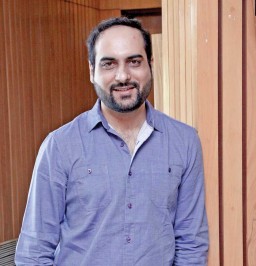
The top level management teams at garment factories are busy in the calculation of their additional cost on salaries, as from 1st September 2014 there has been an enhancement in Provident Fund (PF) of statutory wage, raising the ceiling to Rs. 15,000 minimum, earlier it was Rs. 6,500. For an employee with a basic salary of Rs.6,500/-, the PF Contribution @ 12 per cent of basic salary had been Rs.780 whilst in the revised case, it would be Rs.1,800, an increase of Rs.1,020/-. Clearly, whereas the employees (with Basic Salaries greater than Rs. 15,000) will benefit from the gain, it will be a huge financial burden on the export houses that are already struggling with their bottom lines. Apparel Online talks to some export houses, top brands and HR Managers on this issue and they interestingly welcome the decision despite it being an extra cost, many saying that it will stimulate welfare of their workers as well as create an opportunity to get more talented workers into the industry.
Normally, workers don’t want to deduct their PF but due to compliance and stringent Government regulations, good factories follow the Provident Fund deduction policy as a rule, ironically now with this enhanced limit, factories are facing greater difficulties in convincing the workers that it is a new rule and that too for their social security as well as monthly saving. The companies are doing counselling and trying to convince them. “From the employee point of view it’s a good initiative taken by the Government and the industry will adjust the cost. We have already started talking to workers, counselling, education and telling them that ultimately it is for their benefit, so we have to keep it going and worker also must adjust to it in that way,” says JD Giri, Director, Shahi Exports, Faridabad. With over 50 garments manufacturing units across the nation, Shahi has strength of over 85,000 workers.
Though it is not easy to convince the workers, but companies are doing their best for the same, Orient Craft having almost 30,000 people working for it has welfare officers exclusively dealing with this issue and they have their complete focus on PF and the overall benefit it can give to the industry. Vimarsh Razdan, Associate Vice President, Orient Craft Limited, Gurgaon shares his personal experience on PF deductions, “I personally feel that PF is a big benefit though it is very difficult to convince the workers of the same, there are even managers who do not want PF deduction. Contractual labour strongly feel that companies are duping them, by taking money away from them, even though they have every minute record of their compensation. Yet, I do not blame them, there is a real time problem with them as they are migratory and mostly uneducated, small problems like spelling mistake, pet name and formal name and the like creates lot of issues in PF office to retrieve the PF. Our welfare staffs goes to the PF office with them to instil confidence in workers that this is what we have brought back for you, and you are getting additional amount also. We demonstrate this again and again and today 70 per cent of our workforce realizes the advantage.” Vimarsh calculates that new rule will add 50 per cent increase in their direct wages but he is optimistic, as he believes that it is an opportunity to get back the good workforce that has moved out of the industry which will be a benefit in the long run. “The higher productivity of talented workers is big help for us compared to this cost as direct labour cost is not more than 20 per cent of cost of total business,” argues Vimarsh.
“With the increase in PF liability it will be very difficult to bring out the product at a given cost, so we are thinking to automate our operations.” – Sanjay Anand, Director, Blackberrys
The increase in the cost of PF will also lead the companies to focus on best possible automations so as to cut the cost. Using maximum automation in his factories, Sanjay Anand, Director, Blackberrys (Mohan Clothing Co.), Gurgaon says, “With the increase in PF liability it will be very difficult to bring out the product at a given cost, so we are thinking to automate our operations up to that extent where we can compete in the market, as many other manufacturers are getting there outsourcing/job work done in low minimum wage area in India, Bangladesh and China. So we have to work very hard on automation. Higher wages and more PF will add almost 50 per cent more cost in manufacturing while automation will cost only 20 per cent.”
“From the employee point of view it’s a good initiative taken by the Government and the industry will adjust the cost.” – JD Giri, Director, Shahi Exports
Looking at the cost factor, many opine that it may lead to more outsourcing, especially in the case of big Indian brands that are already sourcing from low cost destination. “Companies like us that outsource a lot of products, along with our own manufacturing, will definitely enhance the outsourcing from cheaper countries like Vietnam, Bangladesh because being a brand you have to control the cost and also maintain high standard of quality,” says Harkirat Singh, MD, Woodland, Delhi.
“I personally feel that PF is a big benefit though it is very difficult to convince the workers of the same, there are even managers who do not want PF deduction.” – Vimarsh Razdan, Associate Vice President, Orient Craft
It is a known fact that the export houses are already struggling with many ‘negatives’ including tough international competition (especially within the Indian subcontinent), reduced margins, increasing wages and increasing input costs. In such a scenario, the enhancement of PF limits, though a step towards welfare of workers is an added cost and garment exporters have expressed the need of support in some form from the Government as well to bear the additional expenditure. “With the Government introducing new schemes through the PF Department such as the Universal Account Number (UAN) and the faster clearance of Provident Fund withdrawal claims, the confidence of workers in PF Schemes is increasing with each passing day. It is like a day-to-day comfort, but on policy levels, the Government should in same way contribute to this cost as exporters are already facing many challenges,” reasons Dinesh Mehra, CFO in a Gurgaon based big export house.
“Companies like us that outsource a lot of products, along with our own manufacturing, will definitely enhance the outsourcing from cheaper countries.” – Harkirat Singh, MD, Woodland
Issue is not limited only to the operators at the shop floor, even floor in-charges, supervisors, senior production supervisors, sampling tailors, QC, office executive, field boys and in some cases entry level and mid level management also is impacted by this and they do have their reservation on the same issue. While Gopal Singh, Group Head – HR/Compliance, Sargam Exports Ltd., Gurgaon sharing his personal opinion: says, “Companies have two options: Contribute for old employees and treat it like an increment; and in the case of new employees, put the total burden on them.” Ajay Mishra, Senior Manager, HR, CTA Apparels, Noida opines that most of the companies will not be able to bear the additional cost and in coming fiscal or at appraisal time, they will adjust into the staff salary rather than bearing it.










